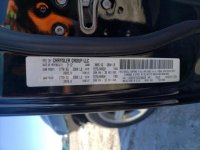ovrszd
Epic Contributor
- Joined
- May 27, 2006
- Messages
- 32,246
- Location
- Missouri
- Tractor
- Kubota M9540, Ford 3910FWD, Ford 555A, JD2210
Something new trailer owners rarely understand. When you apply the brakes while towing an Electric braked trailer the controller sends a voltage signal to the electromagnets at each trailer braked wheel assembly. Depending on how the controller is setup, the brake activates and reaches it setting capacity very quickly.Yep. Controlling the trailer is the most important factor. With a half ton truck, a heavy trailer tends to push the truck around. With a heavier truck, the truck controls the trailer.
If the vehicle/trailer isn't stopping quick enough the operator pushes the brake pedal harder. Nothing changes at the trailer, it's already at capacity. To shorten the stopping distance the tow vehicle has to do it all. At this moment the weight of the tow vehicle and it's braking capacity are very, very critical.

